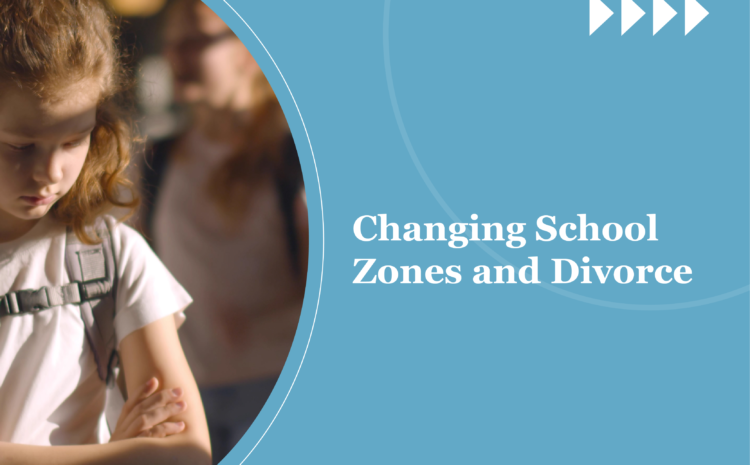
A question asked during Love Court on the Alice 96.5 Morning Show was centered on the co-parenting topic of changing schools and school zones of your child after a divorce. This can be a difficult topic to broach; however, it can also be one that comes up often with divorced parents. Ultimately the court is going to look at the whole situation with the child’s best interests in mind. We’ve put together some other factors that will be – and should be – considered to help you navigate the situation.
Why Change School Zones?
Firstly, the reason for the change should be considered. Your child might require unique assistance that the present school does not provide or have been accepted into a magnet, STEM, or Vanguard program in another school zone.
Perhaps the primary conservator prefers that the child attend a religious or private school in a different district. Maybe one or both of you have moved into another area after the divorce, and the move is necessary for transportation reasons. These may be strong motivations to relocate with your child.
The reasons for changing your child’s school, whether your child agrees to the change, how the move will affect your court-ordered visitation schedule, and whether there are any legitimate objections to the move are just a few of the many factors the court may take into account when determining what is in your child’s best interest.
Considerations on Changing School Zones
The ideal situation is for you and your spouse to agree on educational choices for your child, avoiding any potential conflict. If you can’t come to an agreement, the decree or order will often outline the boundaries of the child’s primary residence as well as the parents’ respective rights to decide on the child’s educational options. The child custody arrangement may determine whether you need the other parent’s approval to alter your child’s school. Legal custody typically involves the authority, duties, and rights to make decisions on the child’s care, education, and health. Legal custody may be shared by both parents, given to one parent, or divided equally between them.
One parent may be able to alter the child’s school without the other parent’s permission when that parent has sole legal custody or sole legal custody over educational decisions. Even while one parent is legally permitted to switch the child’s school, this does not guarantee that the other parent won’t try to provoke conflict.
As long as the child stays within the geographical bounds of the decree or order, the conservator who has the authority to name the child’s primary residence normally has the ability to relocate the child to a new school district. Typically, the child would go to the district’s public school where that parent lives.
However, in order to move outside the boundaries of the geographic restriction indicated in the decree or order, the parent who has the authority to determine the child’s primary residence must either have the other parent’s consent or ask for a revision of the decree or order. If the opposing party objects, you could have to retry your case in court.
If you’d like to learn more about changing school zones after a divorce, be sure to check out this episode’s question on Love Court on the Alice 96.5 Morning Show.
Support Your Child
One of the largest transitions and hardships for children of divorced parents is starting at a new school. Your child will need to get adjusted to a new family structure, which may include changing houses, as well as a new educational setting. So, in the event that the school zone change does happen, support your child through it to help ease them into a new environment.
Informing instructors about the divorce will help your child adjust to their new school. This will alert teachers to any emotional problems your child may be having as well as intricate family relationships. In order to assist your child in feeling more at home and developing friends, become acquainted with the school in advance and connect with other families there. Participate in parent events at the school to help your child feel more at ease about the transition in the classroom.
Changes to school zone boundaries are never easy for families with children in the school system. It’s not just about the distance or time that a student will have to travel to and from their school, but also about making friends and feeling at home in a new area. Even if your ex-spouse is open to a change, he or she may feel uneasy when considering moving his or her child during the middle of a school semester, wondering how such a move will affect their child’s emotional wellbeing.
If you and your ex-spouse are having trouble discussing a move away from your children’s school district, feel free to contact Anderson Keuscher PLLC to help you navigate this transition.
